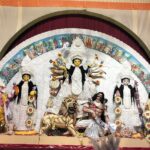Troy Turkey is an ancient city located in northwestern Turkey, near the Dardanelles Strait. This UNESCO World Heritage Site has a history spanning over 4,000 years and is famous for the Trojan War. Archaeological excavations have uncovered several layers of settlements, proving its historical significance. The city played an important role in ancient trade routes and inspired literary works such as Homer’s Iliad. Troy’s well-preserved ruins attract historians and travellers, offering insights into the past. Visitors can explore its walls, temples, and artifacts that reveal its cultural and historical legacy.
Location
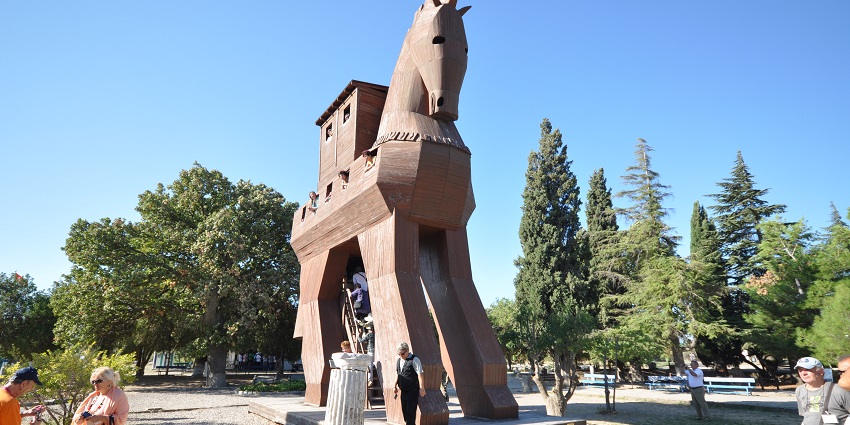
Photo: Jorge Láscar / Wikimedia Commons
Troy Turkey is located in Çanakkale Province, about 30 kilometers southwest of Çanakkale city. Positioned near the Dardanelles, it served as a key center for commerce and military strategy in ancient times. The site played a significant role in connecting different regions, enabling cultural exchanges and economic growth. Its historical significance extends beyond the Trojan War, as it was inhabited for centuries, witnessing numerous developments. Today, visitors explore its layered ruins, reflecting the various civilizations that thrived in this strategic location.
How To Reach

Photo: Ken Fielding / Wikimedia Commons / Image For Representation Only
By Air: The nearest airport is Çanakkale Airport, around 30 kilometers from Troy. Domestic flights operate from Istanbul, connecting to major international routes.
By Rail: Train services from Istanbul to Bandırma are available, followed by a ferry ride to Çanakkale. From there, local transport can take visitors to Troy.
By Road: Several intercity buses run from Istanbul, Izmir, and Ankara to Çanakkale. Local minibuses operate between Çanakkale and Troy. Taxis are available from Çanakkale city, providing a convenient option for reaching Troy directly.
Things To Do
Discover the best things to do in Troy Turkey, from historical sites to nearby attractions:
1. Explore The Museum Of Troy
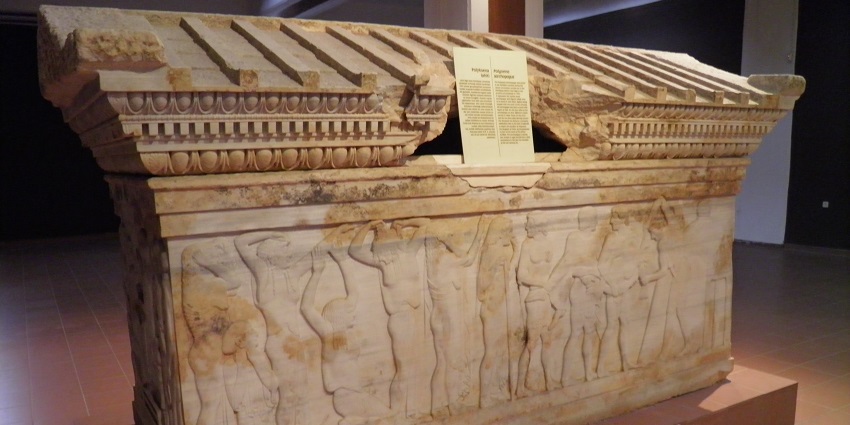
Photo: Carole Raddato / Wikimedia Commons
The Museum of Troy houses an extensive collection of artifacts recovered from archaeological excavations. It provides a glimpse into the daily lives of ancient inhabitants. Visitors can examine pottery, weapons, and sculptures that illustrate the artistic and technological advancements of past civilizations. Informative panels explain the historical significance of Troy’s legendary past, including its connections to the Trojan War. Interactive displays allow for an engaging experience, helping visitors understand the site’s transformation over centuries.
2. Take A Ferry To The Island Of Bozcaada
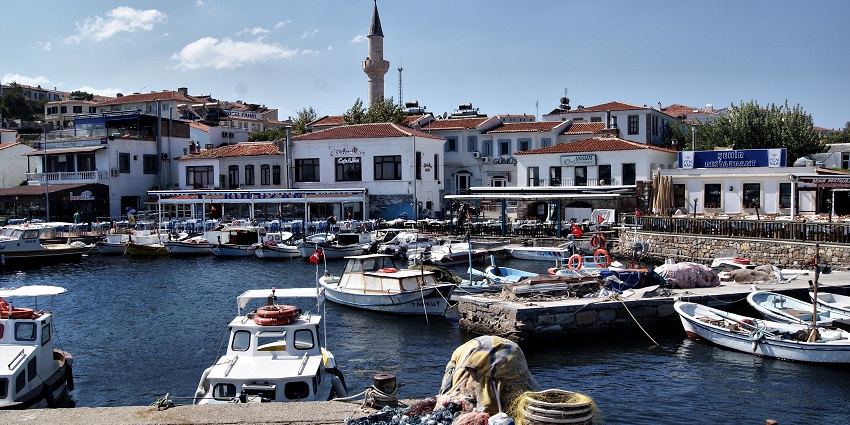
Photo: HALUK COMERTEL / Wikimedia Commons
A ferry ride to Bozcaada presents an opportunity to explore a destination rich in history and culture. The island’s well-preserved architecture reflects its diverse past, with cobbled streets leading to traditional houses and historical landmarks. Visitors can visit local markets offering handcrafted goods and regional products. The island’s coastal areas provide a peaceful setting for leisurely exploration. Restaurants serve traditional dishes made from fresh ingredients, allowing visitors to experience authentic local cuisine. The relaxed pace of life on Bozcaada offers a refreshing contrast to busier destinations.
3. Visit The Ancient City Of Troy
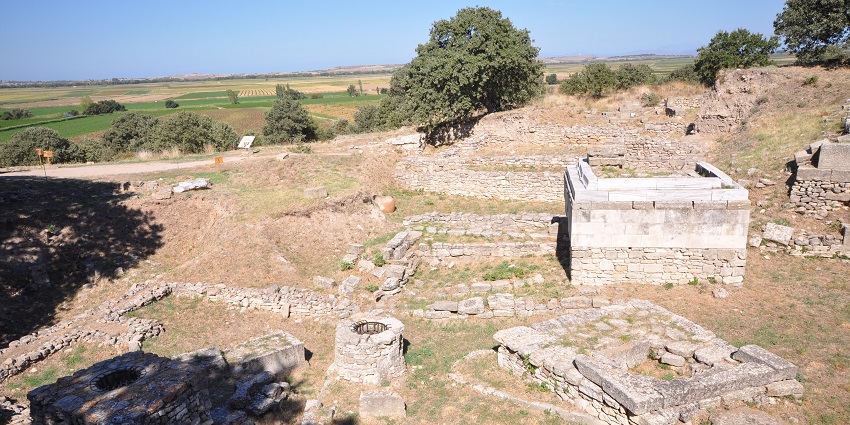
Photo: Jorge Láscar / Wikimedia Commons
The ruins of the ancient city of Troy offer a compelling look at one of history’s most legendary sites. Walking among the remains of city walls, gates, and temples allows visitors to trace the development of multiple settlements built over centuries. Informational markers provide context about the city’s role in trade, warfare, and mythology. The reconstructed wooden Trojan Horse stands as a tribute to the famous tale. Exploring the site gives insight into the architectural and strategic advancements of its time, making it a must-visit for history enthusiasts.
Places To Visit Around Troy Turkey
Here are some places to visit in Troy Turkey that highlight its historical and cultural significance:
1. Cimenlik Castle
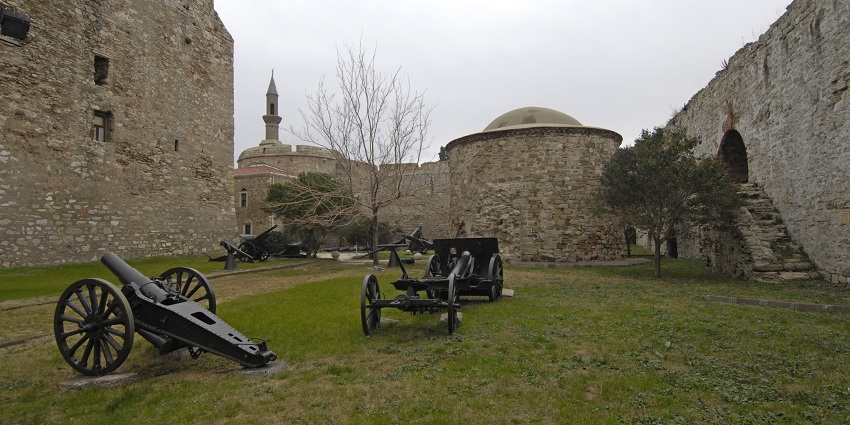
Photo: Dosseman / Wikimedia Commons
Cimenlik Castle, built in the 15th century by the Ottoman Empire, stands as a historical landmark in Çanakkale. Initially constructed to strengthen maritime defense along the Dardanelles, the fortress now serves as a military museum. Inside, visitors can explore exhibits showcasing naval history, wartime strategies, and preserved artifacts. The castle’s strategic location along the strait offers an informative glimpse into its military importance. The well-preserved walls and courtyards highlight the architectural techniques of the era, making it a notable destination for history enthusiasts.
Major Attraction: Military museum, historical artifacts
Timings: 9 AM – 5 PM
2. Kilitbahir Fortress
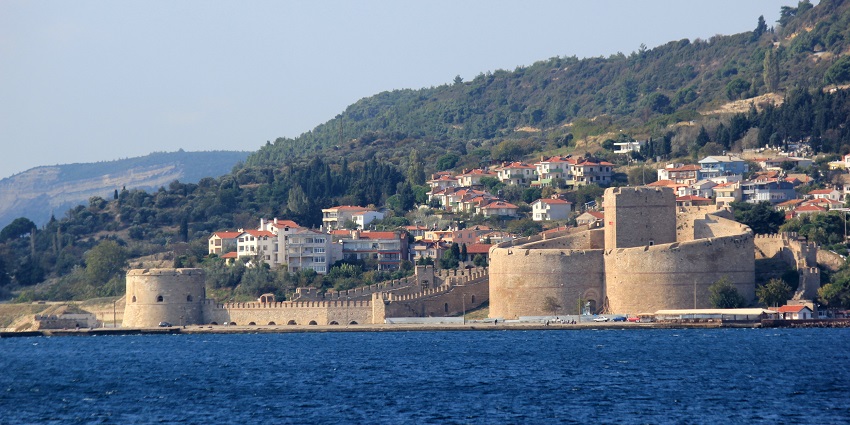
Photo: Julian Nyča / Wikimedia Commons
Kilitbahir Fortress, constructed under the orders of Sultan Mehmed II, played a crucial role in controlling naval passage through the Dardanelles. This well-preserved fortress features thick stone walls, strategic watchtowers, and underground passages that offer insight into medieval defense systems. Inside, historical exhibits showcase weaponry, artifacts, and architectural designs from the Ottoman era. The elevated sections of the fortress provide sweeping views of the surrounding waters. This allows visitors to appreciate its strategic positioning and historical relevance in maritime defense.
Major Attraction: Fortified walls, historical exhibits
Timings: 9 AM – 6 PM
3. Trojan Horse
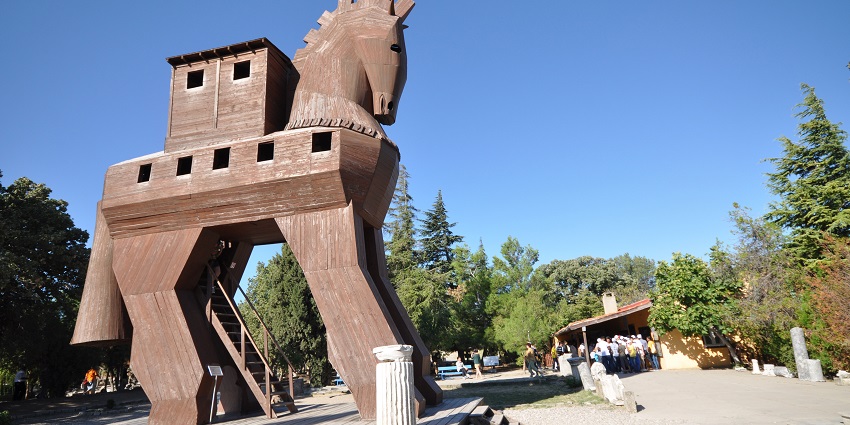
Photo: Jorge Láscar / Wikimedia Commons
The iconic Trojan Horse replica in Çanakkale serves as a tribute to the ancient legend of Troy. The large wooden structure, designed based on historical interpretations, allows visitors to step inside and view the city from within. Informational boards around the site explain the significance of the Trojan War and its place in Greek mythology. This attraction appeals to both history enthusiasts and casual tourists, offering an engaging experience. The surrounding area also features sculptures and themed installations, enhancing the cultural and historical context of the site.
Major Attraction: Trojan Horse replica, historical significance
Timings: Open all day
Where To Stay

Photo: Eddie Maloney / Wikimedia Commons / Image For Representation Only
Troy offers a range of accommodations near the archaeological site and surrounding towns. Çanakkale, located nearby, provides hotels, guesthouses, and budget – friendly stays. Some options include historical-themed lodgings that reflect the region’s heritage. Visitors can find hotels with modern amenities, local hospitality, and easy access to key attractions. Staying in the town allows travellers to explore Troy and the Dardanelles without long commutes.
Where To Eat

Photo: Riyadh Al Balushi / Wikimedia Commons / Image For Representation Only
Visitors can enjoy traditional Turkish cuisine in restaurants near Troy and Çanakkale. Many establishments serve regional specialties such as grilled lamb, seafood, and meze platters. Street food stalls offer quick bites, including gözleme and simit. Some restaurants focus on Ottoman-inspired recipes, providing an authentic experience. Cafés along the waterfront in Çanakkale offer fresh pastries and local tea. Dining options range from casual eateries to family-run establishments, ensuring a taste of both contemporary and time – honoured flavors.
Best Time To Visit
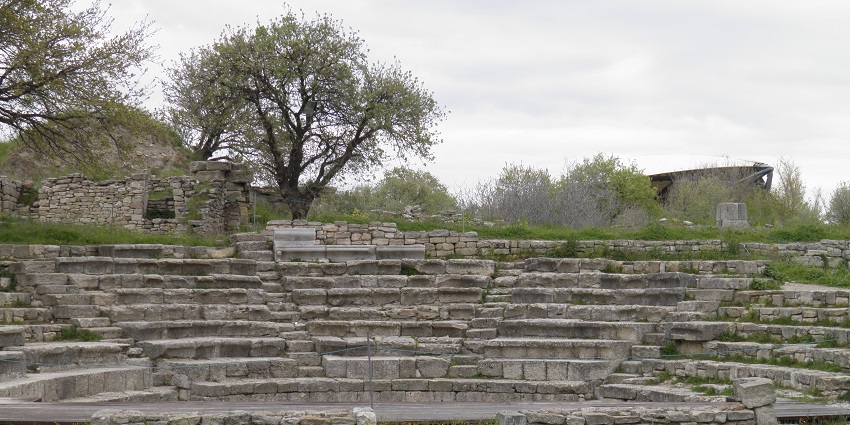
Photo: Carole Raddato / Wikimedia Commons
The ideal time to visit Troy Turkey is during spring and autumn, when temperatures remain comfortable for outdoor exploration. From April to June, the weather is pleasant, and the archaeological site is easier to navigate. September to early November offers mild temperatures with fewer crowds. Summer months can be warm, requiring visitors to plan early morning or late afternoon visits. Winter brings occasional rain, which might limit outdoor activities but provides a quieter atmosphere for those seeking an uninterrupted experience of the ruins.
Tips For Travellers

Photo: CZmarlin / Wikimedia Commons / Image For Representation Only
- Carry comfortable walking shoes for exploring archaeological sites.
- Visit early in the morning to avoid crowds.
- Check local transport options in advance for a smooth journey.
- Carry local currency (₺) for entry fees and small purchases.
- Plan visits to multiple sites in a single day for better time management.
Troy Turkey presents an opportunity to explore ancient history through its ruins and archaeological findings. Visitors can walk through remnants of city walls, temples, and theaters that reveal Troy’s significance over centuries. Museums display excavated artifacts, providing deeper insights into their cultural and historical importance. Nearby sites offer additional learning experiences, making the trip more enriching. Local restaurants serve traditional and international dishes, ensuring a comfortable visit. Plan your journey with TripXL to explore Troy’s historical wonders.
Cover Photo: Ebru Sargın L. / Wikimedia Commons


 WhatsApp
WhatsApp
 Twitter
Twitter


